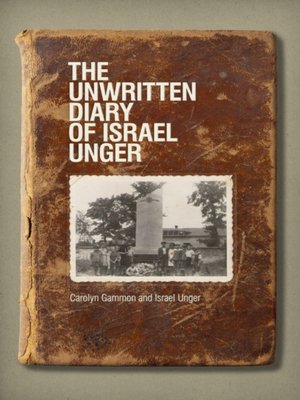
Sign up to save your library
With an OverDrive account, you can save your favorite libraries for at-a-glance information about availability. Find out more about OverDrive accounts.
Find this title in Libby, the library reading app by OverDrive.



Search for a digital library with this title
Title found at these libraries:
| Library Name | Distance |
|---|---|
| Loading... |
At the beginning of the Nazi period, 25,000 Jewish people lived in Tarnow, Poland. By the end of the Second World War, nine remained. Like Anne Frank, Israel Unger and his family hid for two years in an attic crawl space. Against all odds, they emerged alive. Now, after decades of silence, here is Unger's "unwritten diary."
Nine people lived behind that false wall above the Dagnan flour mill in Tarnow. Their stove was the chimney that went up through the attic; their windows were cracks in the wall. Survival depended on the food the adults were able to forage outside at night. Even at the end of the war, however, Jewish people emerging from hiding were not safe. After the infamous postwar Kielce pogrom, Israel's parents sent him and his brother as "orphans" to France in a program called Rescue Children, a Europe-wide attempt to find homes for Jewish children orphaned by the Holocaust. When the Unger family was finally reunited, they lived a precarious existence between France—as people sans pays—and England until the immigration papers for Canada came through in 1951.
In Montreal, in the world described so well by Mordecai Richler, Israel's father, a co-owner of a factory in Poland, was reduced to sweeping factory floors. At the local yeshiva (Jewish high school), Israel discovered chemistry, and a few short years later he left poverty behind. He had a stellar academic career, married, and raised a family in Fredericton, New Brunswick. The Unwritten Diary of Israel Unger is as much a Holocaust story as it is a story of a young immigrant making every possible use of the opportunities Canada had to offer.







